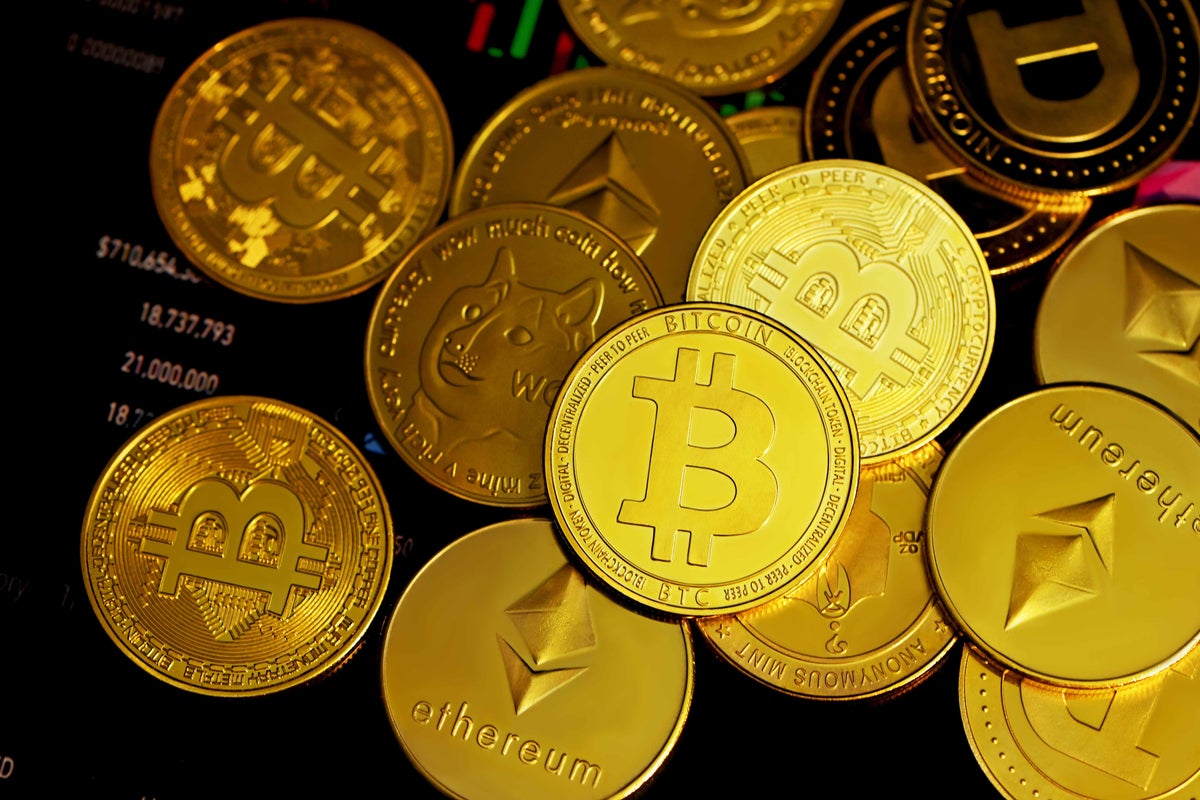[ad_1]
The U.S. Federal Reserve’s decision to hike interest rates by 75 basis points for the fourth consecutive time to combat inflation won’t have any repercussions on the cryptocurrencies market, according to experts, who pointed out major market movers including Bitcoin BTC/USD and Ethereum ETH/USD will be stuck in a range unless there is institutional demand and clarity in regulations.
Although the Fed’s hawkish monetary policy has caused investors to flock to safe-haven assets such as the U.S. dollar, which has seen its value skyrocket, there was anticipation the central bank will soon ease up on the pace of its tightening.
Notwithstanding the positive news, the broader indices witnessed a major sell-off with the Dow Jones, Nasdaq and S&P 500 trading down more than 1.5%, 3.7% and 2.6%, respectively.
The cryptocurrency market mirrored broader financial markets with Bitcoin down 1%, Ethereum trading down about 3.5%, Binance BNB/USD and Ripple XRP/USD down 1.3% and 2% respectively.
“Shark Tank” investor Kevin O’Leary told Benzinga the crypto market had already factored in the rate hike and that it will remain range bound unless there is clarity on regulations.
“Fed rate hike means nothing to crypto valuations. It was already in the market. Cryptocurrencies including Bitcoin will remain range bound until we get clarity on regulation. The stablecoin Transparency Act or any of the digital commodity bills could unlock value but until then crypto is going to be stuck in a rut due to the lack of institutional demand,” he said.
O’Leary will speak at Benzinga’s Future of Crypto conference Dec. 7 in New York City.
Robert Johnson, CEO and chair at Economic Index Associates, said the likelihood of rate increases at the next three Fed meetings will certainly dampen enthusiasm for the “highly speculative assets.”
“Higher rates are certainly a headwind for risk assets and crypto represents perhaps the highest risk of all risk assets. Crypto speculators were bolstered by unprecedented quantitative easing undertaken in light of the coronavirus pandemic,” Johnson added.
Next: Legal Troubles Escalate For Celsius As Court Broadens Scope Of Investigation
Guneet Kaur, a research scholar of digital currencies at the University of Stirling said in the future, higher Fed rates will be a barrier to crypto assets, considering the previous hikes caused Bitcoin and Ethereum’s prices to decline.
“Also, since the start of 2022, risky asset classes like stocks and crypto have been heavily correlated, and a dip in one asset class will likely be followed by the other or vice-versa. However, the cryptocurrency’s adoption by institutional and retail active traders will balance any short-term falls brought on by rate increases. So, investors should find ways to use the market’s volatility to their advantage instead of trying to time the market and displaying herd behavior,” Kaur added.
Julius de Kempenaer, crypto expert and senior technical analyst at Stockcharts.com, said Bitcoin and other cryptocurrencies generally seem less sensitive to macroeconomic events like this rate hike.
“I don’t see this changing going forward, which could help crypto/BTC decorrelate from traditional markets (stocks/bonds) especially when these markets are going through periods of weakness,” he said.
Bitcoin had a relatively large swing as an initial move after the announcement, but the market calmed down shortly thereafter without showing a major change in its current market structure.
On the hourly chart, Bitcoin dropped back again after the initial rally but managed to remain above support levels near $20,000, but more importantly, $18,000.
“These levels are at the bottom of a trading range in which BTC is moving since June. And the longer that 18k support area holds up, the more important it will become. Within that range, BTC can rise towards 21K and subsequently 25K, and a strong positive divergence between price and the RSI supports such a move,” Kempenaer further said.
Next: What’s Going On With Ripple Labs (XRP)? Here’s What You Need To Know
Photo: Unsplash
[ad_2]
Image and article originally from www.benzinga.com. Read the original article here.

